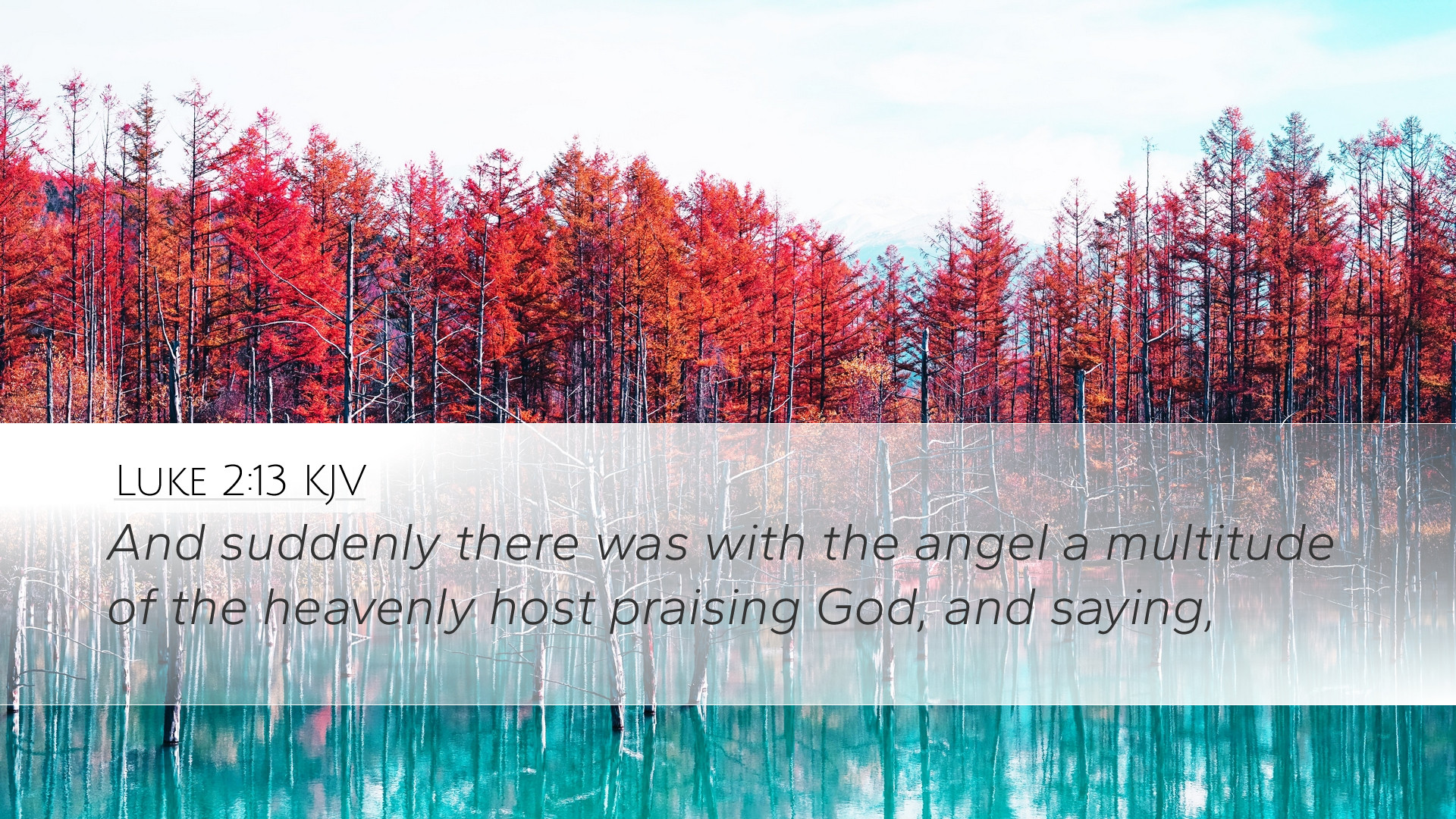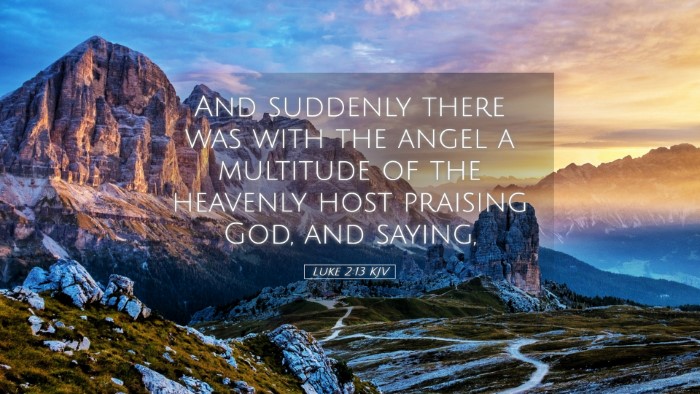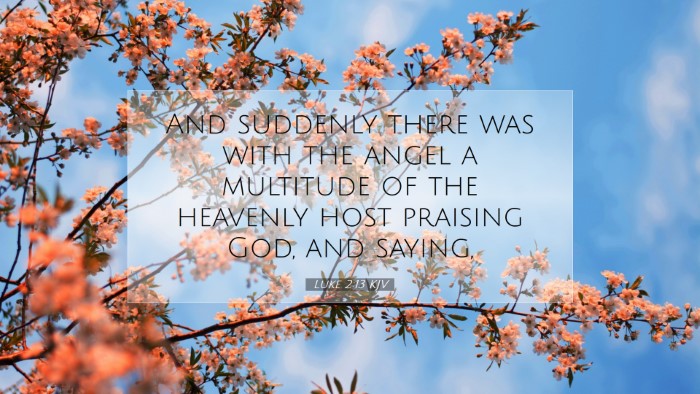Commentary on Luke 2:13
Luke 2:13 states: "And suddenly there was with the angel a multitude of the heavenly host praising God, and saying..." This verse, nestled within the narrative of Christ's birth, offers profound theological implications and insights that are vital for pastors, theologians, and Bible scholars.
Contextual Overview
This moment occurs immediately following the announcement of Jesus' birth by an angel to the shepherds. It signifies a pivotal moment where the divine intersects with human existence. The abrupt appearance of a multitude of heavenly beings to herald this event reflects both the significance of the birth of Christ and the cosmic repercussions of this event.
Theological Significance
- Angelic Messengers: The presence of angels underscores the importance of the birth of Jesus. According to Matthew Henry, angels are God's messengers. Their appearance signifies that the birth of Christ is a matter of heavenly concern and joy.
- Multitude of the Heavenly Host: Albert Barnes highlights that this multitude represents the vastness of divine approval and joy. The term "heavenly host" suggests an army of angels, illustrating God's might and the celebratory nature of the announcement.
- Worship and Praise: Adam Clarke notes that the primary response of the heavenly host is to praise God, which teaches us about the centrality of worship in the existence of the created order. Their praises can be seen as a template for our response to divine interventions.
Angelic Revelation and Human Response
The suddenness of the angelic appearance reflects God's timing and the element of divine surprise. Matthew Henry observes that there is a contrast between the quiet night of the shepherds and the overwhelming glory of the heavenly host. It compels a response from both the shepherds and us today: a call to witness and proclaim the good news of Jesus Christ.
Cosmic Joy
The song of the angels articulates a cosmic joy that surpasses human understanding. This aligns with the idea that Jesus' birth is not merely a local event but one with implications for all creation. According to Albert Barnes, the joy of the angels is a protective joy; they are heralding peace on earth because of the Savior's entrance into our world. This peace is more than the absence of conflict; it is a restoration of relationship between God and humanity.
The Nature of Praises
- Divine Proclamation: The angels' declaration contains significant theological content, including glory to God and peace on earth. This dual focus illustrates God’s glory being paramount and the inherent need for peace among humanity.
- Significance of "Glory": Clarke emphasizes the phrase "glory to God in the highest," suggesting that the highest form of glory is due to God. This encourages believers to recognize and ascribe worth to God as most deserving.
Applications for Believers
The message here resonates profoundly with believers today. By experiencing the joy that the angels express, we are reminded to celebrate the birth of Christ not just as a historical event but as an ongoing invitation to intimacy with God. Worship, as modeled by the angels, must be our response to the revelation of Christ.
Conclusion
Luke 2:13 serves as an important intersection between heaven and earth, drawing believers into understanding the true nature of joy and worship tied to the coming of Christ. By reflecting on the insights of Henry, Barnes, and Clarke, we're encouraged to approach the advent of Christ with a heart poised for praise, understanding the grand narrative of redemption that surpasses time and space.


